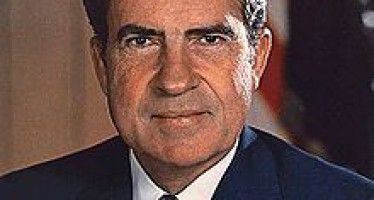Medi-Cal woes leave CA hurting
 A victim of its own success, California’s popular Medi-Cal program has rapidly swelled to a large enough size to malfunction. It’s known as Medicaid in the rest of the country and provides medical care to poor people.
A victim of its own success, California’s popular Medi-Cal program has rapidly swelled to a large enough size to malfunction. It’s known as Medicaid in the rest of the country and provides medical care to poor people.
Mounting woes — from applicant backlogs to outdated regulations — have raised serious concerns among analysts and policymakers.
In part, the challenges facing the Medi-Cal system came about because of administrative changes triggered by the federal Affordable Care Act, or Obamacare. Here it’s called Covered California. As CalWatchdog.com reported, a combination of cuts in federal and state budgetary subsidies boosted provider costs.
“A provision of Obamacare hiked the rates for primary care doctors to the substantially higher Medicare rates for two years, but those increases ended on Dec. 31,” reported the San Jose Mercury News. “A second blow came last month when the state cut the Medi-Cal reimbursement rate by another 10 percent, a reduction approved by California lawmakers in 2011 but delayed in a court battle that doctors ultimately lost.”
But the ACA has made an even greater impact on California’s health care challenges by ballooning the population accessing Medi-Cal benefits. As the Mercury News reported, Obamacare opened the floodgates in Jan. 2014, resulting in 2.7 million more recipients to date.
California’s expanded recipient group now makes up 17 percent of total national Obamacare enrollment, even though California’s overall population is just 12 percent of the U.S. total.
State health officials, according to the Mercury News, have concluded that by the middle of 2016, “more than 12.2 million people — nearly a third of all Californians — will be on Medi-Cal.” Meanwhile, the program already consumes about two-thirds of California state-government spending on health and human services overall.
Budgetary fears
For both Gov. Jerry Brown and Sacramento legislators, these trend lines have raised sharp worries, as McKnight’s news service reported:
“State lawmakers this week said the latest enrollment news is alarming, and that even if a new pending rate request hike goes through, there is concern the state will run out of funding to care for its Medicaid recipients. State Medicaid costs are up 4.3 percent this year while federal share of costs for new enrollees will begin dropping in 2016, according to Gov. Jerry Brown.”
Brown has made an effort to head some costs off at the pass in his budget plan. According to State of Reform, a health-care think tank, “Brown has earmarked $2 billion in total funds ($943.2 million General Fund dollars) to cover mandatory Medi-Cal expansion.”
But pressure to change the budgetary calculus in California’s favor has intensified.
Reducing access
The big picture for Medi-Cal has officeholders and policymakers so nervous because of the ripple effects of increased costs and recipient rolls. State of Reform observed:
“In addition to Medi-Cal primary cuts making it potentially impossible for new patients to find physicians, President Barack Obama’s executive action will make approximately 1 million undocumented immigrants in California eligible for health insurance tax subsidies.”
That has critics warning access to doctors could decrease sharply. In a sobering report issued by the Legislative Analyst’s Office, the impact of the president’s actions was incalculable:
“The benefits received by undocumented immigrants through these programs are almost entirely funded by the state and would therefore result in additional General Fund costs of an unknown amount. The General Fund costs to provide state–funded benefits to this population are unknown at this time.”
With the federal government putting the squeeze on California’s budget, state doctors have become increasingly scarce.
“There are mounting concerns there will not be enough plan doctors to accommodate the enrollment surge,” according to McKnight’s. “One recent study found that only 57 percent of the state’s primary care doctors accept new Medi-Cal patients.”
As a result, increasing numbers of recipients have been winding up in the ER. As the Fresno Bee observed, that transfer of burdens has undermined the claim advanced by Obamacare proponents “that patients with insurance would have primary care doctors to take care of them and less reason to use expensive and overcrowded hospital emergency rooms.”
Although experts have not determined the likely extent of doctors’ unwillingness to treat Medi-Cal patients, California lawmakers have begun to brace for the worst: a substantial budgetary increase that will not be covered by the federal government.
Instead, the higher health tab may have to be absorbed by increased taxes, cuts in other budget areas, or both.
Related Articles
Obamacare in Washington, D.C.
Feb. 22, 2013 By John Seiler Although Washington, D.C. now has some “home rule” by local democracy, the U.S. Constitution
CA Supreme Court to review pension case with nationwide implications
Reigniting a perpetually smoldering debate with nationwide implications, the California State Supreme Court agreed to consider whether rules cracking down on
Steinberg’s side job raises ethics questions
Senate President Pro Tem Darrell Steinberg, D-Sacramento, has tried in vain to distance himself from the FBI’s ongoing investigation into




